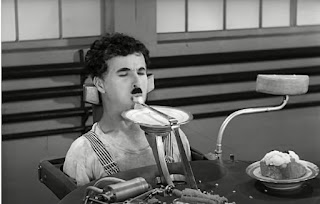The theme of time management requires a logic that justifies it first as a power that will give the feeling that the individual has a choice, which henceforth will represent a subject who sees himself between the strength of his work as useful to be capitalised on and the time when his free time has become an object of desire in the modern world.
The promise, in this case, finds the myth of the entrepreneur of himself, portrays the historical materialism that in its content, in fact, seeks what was promised to the subject, that famous freedom to be able to be in his constitution of himself, his own investment.
No doubt when dealing with the Industrial Revolution the capital measured by reason, produced beyond the division of labour the fight for the rights of man in this time that we still seek what it really is to be free. Before we expose how we deal with such risk management in time, we present the classic Charles Chaplin's film "Modern Times" to think about our time.
Now, what is free time? What was the labour society in the 20th century for Max Weber and how did Karl Marx influence it? How the Frankfurt school saw Theodor W. Adorno on time management. The film "Modern Times" is a silent movie classic from 1936, produced in the USA, by Charles Chaplin brought the critique of liberalism in times of Fordism, still reminiscent of that 1929 famine.
To social scientists who experience the challenge of managing their own time, it is up to them to think about how neoliberalism promised the myth that would circumvent the historical course of social struggles in their rights.
Thus, it is given to us to think about what was communism, socialism, capitalism, and how they meet in the process of absolute control of the bodies, and in this path, it will be possible to meet Michel Foucault and review the sacrifice.

